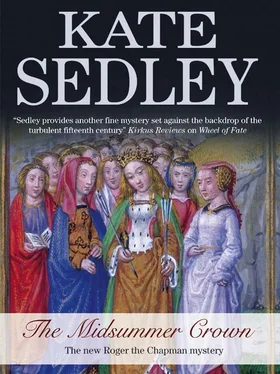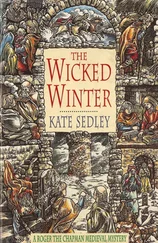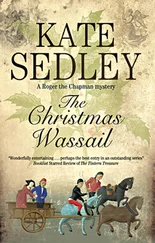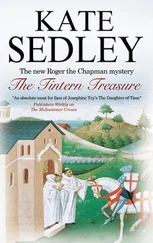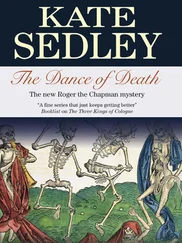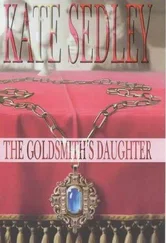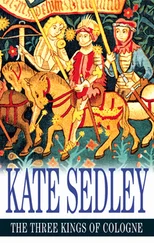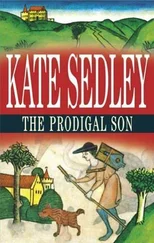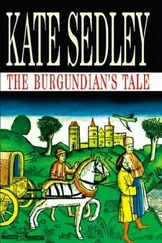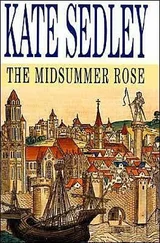Kate Sedley - The Midsummer Crown
Здесь есть возможность читать онлайн «Kate Sedley - The Midsummer Crown» весь текст электронной книги совершенно бесплатно (целиком полную версию без сокращений). В некоторых случаях можно слушать аудио, скачать через торрент в формате fb2 и присутствует краткое содержание. Жанр: Исторический детектив, на английском языке. Описание произведения, (предисловие) а так же отзывы посетителей доступны на портале библиотеки ЛибКат.
- Название:The Midsummer Crown
- Автор:
- Жанр:
- Год:неизвестен
- ISBN:нет данных
- Рейтинг книги:3 / 5. Голосов: 1
-
Избранное:Добавить в избранное
- Отзывы:
-
Ваша оценка:
- 60
- 1
- 2
- 3
- 4
- 5
The Midsummer Crown: краткое содержание, описание и аннотация
Предлагаем к чтению аннотацию, описание, краткое содержание или предисловие (зависит от того, что написал сам автор книги «The Midsummer Crown»). Если вы не нашли необходимую информацию о книге — напишите в комментариях, мы постараемся отыскать её.
The Midsummer Crown — читать онлайн бесплатно полную книгу (весь текст) целиком
Ниже представлен текст книги, разбитый по страницам. Система сохранения места последней прочитанной страницы, позволяет с удобством читать онлайн бесплатно книгу «The Midsummer Crown», без необходимости каждый раз заново искать на чём Вы остановились. Поставьте закладку, и сможете в любой момент перейти на страницу, на которой закончили чтение.
Интервал:
Закладка:
Kate Sedley
The Midsummer Crown
ONE
Everything was very hot and very still. Sunlight splashed across the walls of the farmhouse making them tremble in the afternoon heat. The courtyard was an empty, glimmering shell, and the tantalizing smell of early honeysuckle mingled with the more elusive scent of newly scythed grass. May, that most capricious of months, had today decided she would play at being August. Tomorrow, doubtless, she would again be as tearful as Niobe, alternating sunshine and showers with a chilly wind better suited to April weather.
I was five or six miles distant from London which I had quit early that morning, just after sun-up, passing through the New Gate and the fields around Holborn to join the Bristol road. I had left behind me a city fretful and uneasy, searching for the answers to questions, but uncertain exactly what those questions were.
It was just over five weeks since the sudden death of King Edward IV and the accession of his twelve-year-old son as Edward V, provoking a general sense of misgiving at the prospect of another minority reign. More than once recently I had heard Ecclesiastes quoted: ‘Woe unto thee, O land, when thy ruler is a child.’ Older people remembered, and younger people knew of, the chaos that had prevailed for so many years after Henry VI had been proclaimed king at nine months old; the jockeying for position by his various uncles, the barons’ struggle for power. And today, everyone was fully aware of the enmity between Queen Elizabeth — Dowager Queen as she now was — and her vast family of brothers, sisters and first-marriage sons and the rest of the nobility. Particularly keen was the dislike between the Woodvilles and the man who was at present the most important personage in the kingdom after the king: Richard, Duke of Gloucester.
If the duke were to be believed — and most people would choose to believe him rather that the queen and her kin — there had already been one attempt on either his liberty or life at Northampton, during the journey south from his Yorkshire estates. It was there that Richard had arranged to rendezvous with the cavalcade travelling across the country from Ludlow Castle, where the young king had been raised for most of his life as Prince of Wales. It seemed that only the timely intervention of another of the royal Plantagenet cousins, Henry, Duke of Buckingham, had revealed the plot to Richard in time for him to arrest the ringleaders — the queen’s brother, Anthony, Earl Rivers, her kinsman, Sir Thomas Vaughan and her younger first-marriage son, Sir Richard Grey — and have all three escorted to separate prisons in the north. The Dukes of Gloucester and Buckingham had then taken charge of the young king, escorting him into his capital, while the Queen Dowager had fled into Westminster sanctuary accompanied by the little Duke of York and her bevy of daughters, where they still remained today.
Five days previously, I had been a witness to that entry into London, being just one of the cheering throng who had greeted the arrival of that blond, blue-eyed child as he rode towards St Paul’s and the service of thanksgiving for his safe deliverance. The crowd had been mainly made up of women, all of them ecstatic at the sight of such an angelic countenance, their maternal instincts leaving them almost breathless with the desire to mother the sweet little soul. The men had been nearly as bad, and I had wondered at the time if I were the only person to note the sour expression in the boy’s eyes and the bitter twist to his rosebud lips.
But, after all, who could blame him for being bitter? All his life he had been surrounded by members of his mother’s family; he was himself entirely a Woodville in looks, with Elizabeth’s famous silver-gilt hair. And suddenly, without warning, he had found himself bereft of everyone he trusted most and taken into the custody of two uncles whom he barely knew: his father’s youngest brother, Richard, Duke of Gloucester, who had lived mostly away from court in his northern fastnesses, and Henry of Buckingham, the reluctant and resentful husband of his mother’s sister, Katherine.
And the king had not been the only disgruntled member of that procession. I had also noted the equally sour face of the Lord Chamberlain, William Hastings, the late king’s greatest friend who had expected to find himself the Duke of Gloucester’s right-hand man, but who had been pushed into a secondary place by Henry of Buckingham, now basking in his cousin’s gratitude and elevated to the position of saviour, confidante and friend which Hastings had assumed he would occupy. The Lord Chamberlain’s resentment and anger had not surprised me, but the speed of his reaction had. It was only the following day that, quite by chance, I had stumbled on a conspiracy between him and his former enemies, the Queen Dowager and some of her adherents, with the late king’s favourite mistress, now living under Hastings’s protection, acting as go-between.
It had, of course, been my duty as a good citizen — and more particularly as a loyal servant of Prince Richard — to report what I had discovered to the duke’s Spymaster General and my old friend, Timothy Plummer. But for reasons of my own I had not done so.
It had never been my intention to go to London at such a difficult and transitional time in civic affairs, but fate, in the person of one, Juliette Gerrish, had forced my hand. A month or so ago, while I was away from home, virtuously plying my trade in order to keep my loved ones in food, clothing and those little luxuries they had come to take for granted, the aforesaid Juliette had arrived in Bristol and, for reasons I had not yet fathomed, persuaded my wife that the baby in her arms was also mine. Adela foolishly believed her — although I have to concede that there were grounds for her credulity — and went to stay with distant relatives in the capital, taking Nicholas, her son by her first husband, and Adam, our son, with her. She left Elizabeth, my first-marriage daughter, with her grandmother.
To cut a long story short, I went after her, having an unshakeable alibi for the time I was supposed to have been fathering this bastard child. (I hadn’t even been in the country!) Adela realized she had made a fool of herself — of course I failed to mention the fact that there had been a time, long before, when I had allowed Juliette Gerrish to seduce me — and welcomed me with open arms. Unfortunately, the rapid return to Bristol that I had planned for us all was delayed by the fact that her cousins, a large family by the name of Godslove, had been in need of my assistance: an old enemy had been intent on killing them all off, one by one. I had eventually managed to expose the culprit, but in doing so, I had, as previously noted, stumbled across the fact that Lord Chamberlain Hastings was plotting treason against the Duke of Gloucester.
I knew very well that I should have informed Timothy Plummer, of my discovery straight away. But fear of being once again sucked into his and the duke’s affairs — which invariably proved life-threatening — and being trapped in London when I wanted to be at home, stayed my hand. Finally, I salved my conscience by writing Timothy a letter which I had arranged to be delivered to him that very day, but not until noon at the earliest, by which hour I hoped to be well clear of London.
As indeed I was, although not as far on as I could have been had I remained on the main Bristol road, where I might easily have got a lift on a cart travelling in my direction. But having, three days ago, sent Adela and the children home ahead of me in the care of our good friend, the Bristol carter, Jack Nym, I had prudently abandoned the highway for the byways, taking the unused tracks and half-hidden paths known only to those who, like myself, use Shanks’s mare rather than the four-legged kind. I had no intention of finding myself overtaken by stalwart young men in the Gloucester livery with instructions to hale me straight back to the capital, not just to explain my conduct, but doubtless to be embroiled in further work for Master Plummer. In the past year, I had been first to Scotland and then to France on the duke’s business. And I wasn’t even officially in his employ. I was a simple, honest — well, perhaps not so simple and not always, I regret to say, entirely honest — pedlar who, twelve years previously, had accidentally stumbled into Richard of Gloucester’s life, rendering him a signal service, and never completely left it since.
Читать дальшеИнтервал:
Закладка:
Похожие книги на «The Midsummer Crown»
Представляем Вашему вниманию похожие книги на «The Midsummer Crown» списком для выбора. Мы отобрали схожую по названию и смыслу литературу в надежде предоставить читателям больше вариантов отыскать новые, интересные, ещё непрочитанные произведения.
Обсуждение, отзывы о книге «The Midsummer Crown» и просто собственные мнения читателей. Оставьте ваши комментарии, напишите, что Вы думаете о произведении, его смысле или главных героях. Укажите что конкретно понравилось, а что нет, и почему Вы так считаете.
